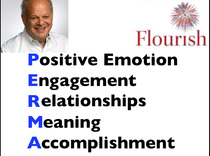- Home
- Awe (NEW 7/24)
- This ain't "happy-ology"...
- Philippiness 2/23 Science of Happiness - Class & Life
- SofH - class & life Spring 2022
- NEW - Time Confetti
- NEW - Happiness Hacks
- NEW - The Power of Fun
- Getting started
- Introducing happiness
- Main Activity Download Center
- 10 Minutes for Happiness (quick tasks)
- Happiness Haiku (consolidation)
- Positive brain chemicals
- New! 3 minutes for positivity
- Becoming Friends
- Savoring
- 5 photos (A savoring task with student projects)
- Flourishing
- Flow
- Positivity
- Laughter
- Meditation
- Mindfulness for kids
- Balloon toss (icebreakers)
- Song/lip dub (Marc's Ss): Pharrell William's HAPPY
- Activities from other teachers
- Don't laugh at me
- Videos of Marc's Talks
- Posters
- Bookshelf (NEW books listed)
- Links
- NUFS MA TESOL task page
- English Firsthand syllabus tie-in
- Monk for a Month (mindfulness)
- Misc PowerPoint downloads
- Contact Marc
- .
- InnovationsPosPsych downloads
- Positive Psychology in SLA (book)
- ..
- NEW BOOK
- test page
- songs for distance teaching
Flourishing / PERMA

Martin Seligman, U. of Pennsylvania and one of the main founders of the Positive Psychology movement, released a book called Flourish with included tehe model PERMA. Essentially, he is bringing happiness up to "Wellness 2.00. (My term, not his. I'm not trying to claim the term. I just don't want to confuse).
PERMA has become one of the most accepted models for how positive psychology actually works.
Happiness ("positive emotion" on his PERMA list) is important. But it is just one part. We also need Engagement, Relationships, Meaning and Accomplishment.
New link: One part of building relationships is establishing rapport. I had an article on the Teaching Village blog on Learning names. It is a very simple technique using name cards, but I find it helps me.
Here is my handout on 17 ways to use Flourish/Perma perma_ideas_2024.pdfin your ELT/EFL/ESL classroom. In the book Flourish, Seligman cites a study (see the chart on the top right on page 18) that shows when people take the time to notice three good things that happen each day -- and WHY -- for a week, they get positive results for six months. Here is a 3 good things happened today tasksheet. It takes maybe five minutes a day for a week. So, for just over a half-hour of time invested, you get a half-year of positive emotion. About 2/3 of my own students reported continuing to notice the good things in their lives two months after they have finished the activity.
This is a well-known and often replicated positive psychology activity. HERE is short article from the Harvard Business Review describing the activity. HERE is the same article, simplified and shortened for EFL/ESL students. A few difficult words are glossed in Japanese (my students' native language) at the end.
The following is a comment from a professor in Bangladesh who tried the activity:
This is Ghazi from Bangladesh. I attended your class and presentation when you and Suman sir were team teaching us on positive psychology. Actually I found your ideas very encouraging and I immediately tried to implement your ideas discussed in the class. So I started with three blessings in your life in one of my ESL classes on writing. As a person regularly practicing yoga and meditation I readily understood the importance of positive psychology in ELT classes. However, I did not have any idea before about how it could be implemented in EFL classes. So your ideas were brilliant and you demonstrated how it could be implemented. I was amazed to see how positively my students reacted. They enjoyed the fun-filled activity and became aware of the blessings they have. Some of the blessings they shared they have they are enjoying sound health, they have their grand fathers or mothers, they have got the opportunity to study at a university, they can pray, they can breathe etc.
I have a plan to use some of the activities in your website for my teacher education class also. Hope to keep in touch with you.
Best Regards, Ghazi, Assistant Professor, Department of English, Premier University Chittagong, Bangladesh.
CLICK HERE for a readable academic article with empirical evidence for the 3 good things activity.
PERMA has become one of the most accepted models for how positive psychology actually works.
Happiness ("positive emotion" on his PERMA list) is important. But it is just one part. We also need Engagement, Relationships, Meaning and Accomplishment.
New link: One part of building relationships is establishing rapport. I had an article on the Teaching Village blog on Learning names. It is a very simple technique using name cards, but I find it helps me.
Here is my handout on 17 ways to use Flourish/Perma perma_ideas_2024.pdfin your ELT/EFL/ESL classroom. In the book Flourish, Seligman cites a study (see the chart on the top right on page 18) that shows when people take the time to notice three good things that happen each day -- and WHY -- for a week, they get positive results for six months. Here is a 3 good things happened today tasksheet. It takes maybe five minutes a day for a week. So, for just over a half-hour of time invested, you get a half-year of positive emotion. About 2/3 of my own students reported continuing to notice the good things in their lives two months after they have finished the activity.
This is a well-known and often replicated positive psychology activity. HERE is short article from the Harvard Business Review describing the activity. HERE is the same article, simplified and shortened for EFL/ESL students. A few difficult words are glossed in Japanese (my students' native language) at the end.
The following is a comment from a professor in Bangladesh who tried the activity:
This is Ghazi from Bangladesh. I attended your class and presentation when you and Suman sir were team teaching us on positive psychology. Actually I found your ideas very encouraging and I immediately tried to implement your ideas discussed in the class. So I started with three blessings in your life in one of my ESL classes on writing. As a person regularly practicing yoga and meditation I readily understood the importance of positive psychology in ELT classes. However, I did not have any idea before about how it could be implemented in EFL classes. So your ideas were brilliant and you demonstrated how it could be implemented. I was amazed to see how positively my students reacted. They enjoyed the fun-filled activity and became aware of the blessings they have. Some of the blessings they shared they have they are enjoying sound health, they have their grand fathers or mothers, they have got the opportunity to study at a university, they can pray, they can breathe etc.
I have a plan to use some of the activities in your website for my teacher education class also. Hope to keep in touch with you.
Best Regards, Ghazi, Assistant Professor, Department of English, Premier University Chittagong, Bangladesh.
CLICK HERE for a readable academic article with empirical evidence for the 3 good things activity.
In January, 2021, I did a short article for the JALT Mind/Brain/Education Think Tank on Adapting Positive Psychology in ELT for On-line teaching. The video below is me talking about the same topic at JALT2020 (it was a co-presentation with John Wiltshier. This is just my part.):
To learn more from Dr. Seligman, check out this short video (about 6 1/2 minutes), "What makes you happy" on youtube. For a more complete explanation, see his RSA lecture (25 minutes), below.
|
In 2020, when all of my teaching was on-line, I decided to start PERMA with the R (relationships). A lot of my students had never met their classmates. We were on Zoom and I thought it was important for them to connect with each other. We wanted to build a real class culture instead of being 30+ separate entities, each in our own box. I asked my students to do short self-introductions. I told them to say something about themselves that was NOT true about everyone in the class. I was very lucky that the first student to respond was a young woman with a very unique hobby - dying her hair. She gave me permission to use it as an example.
I wrote an article for the JALT Mind/Brain/Education SIG Think Tank magazine about using PERMA for on-line teaching. CLICK HERE for the article. Citation: Helgesen, M. (January 2021). Adapting Positive Psychology in ELT to online teaching. JALT Mind/Brain/Education SIG Think Tank. 7(1), 29-32. Full issue at https://www.mindbrained.org/ |
|
